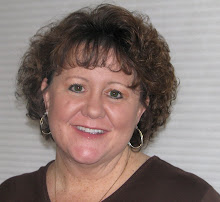Cancer. The disease knows no boundaries. It affects people of all ages, economic backgrounds and both men and women. The media is full of information and does its best to raise awareness on many types of cancer. Unfortunately most of the attention is directed to those cancers that affect primarily women -breast cancer, ovarian cancer and cervical cancer. The lack of attention paid to cancer that affects men can sometimes leave them feeling isolated.
Community Cancer Services is doing its best to change that. Recently a men’s support group for Sandpoint residents was started at CCS. The group meets the fourth Tuesday of each month at 5:30 p.m. at CCS. It is a place where men can share their fears, support one another and find strength from others who are traveling the same or a similar journey in life.
“Everyone is welcome,” said Jim Shirrell, a volunteer for Community Cancer Services and facilitator for the Sandpoint men’s support group. Shirrell helped CCS begin a similar group in Bonners Ferry in February 2008, and it has proven to be a huge success. “We have a total mix. We have survivors, those who are in treatment or those who are facing a recent diagnosis.”
But the men’s support groups are not limited to men who have cancer or who are survivors. Shirrell said any man affected by cancer is welcome. “Men who have family members or friends who have cancer are also welcome to attend,” he said.
While women’s support groups are typically well attended, it is more of a challenge to encourage men to seek support in a group setting.
“I think many men who have been diagnosed with cancer may not choose to seek emotional support because society has taught hem to “tough it out,’” said Bambi Lassen, LCSW, CCS’s part time social worker. “But a cancer diagnosis can bring up many difficult emotions such as anger, fear, guilt, worry, anxiety, shock and sadness.”
Shirrell is a trained volunteer with Hospice and has worked with cancer patients, aids patients, people with disabilities and many others afflicted with health issues.
“My life has always been around health and healing” said Shirrell, who has had many family members diagnosed with cancer and have won the battle.
Shirrell said his role in the support group is that of a facilitator only. “I facilitate, but I do not lead,” said Shirrell. “I let the group lead. It is amazing the stories that come out.”
While men may initially be reluctant to attend a group setting, Shirrell said that once they come they are glad they did.
“They are there every month,” he said. “Support is very important to men because it helps them express their anger and let out their emotions. We laugh together and cry together.”
Each session opens with a featured speaker. In the Bonners Ferry group, they have had social workers and male cancer survivors speak – all offering a message of hope.
“We focus on the positive things that can happen in our life,” said Shirrell.
Both Lassen and Shirrell agree that the support group can be invaluable to the healing process, both emotionally and physically.
“If men choose not to express their emotions or experiences during their journey with cancer, this may cause more problems to arise now or in the future with relationships and mental stability,” said Lassen. “A men's cancer support group can provide a place for just men to explore their feelings and experiences with other men experiencing similar issues.”
To find out more about the Men’s Support Group or any of Community Cancer Service’s programs, please call 208-255-2301 or stop by CCS at 1215 Michigan Street, Suite B in the Westside Center.
Subscribe to:
Post Comments (Atom)

No comments:
Post a Comment